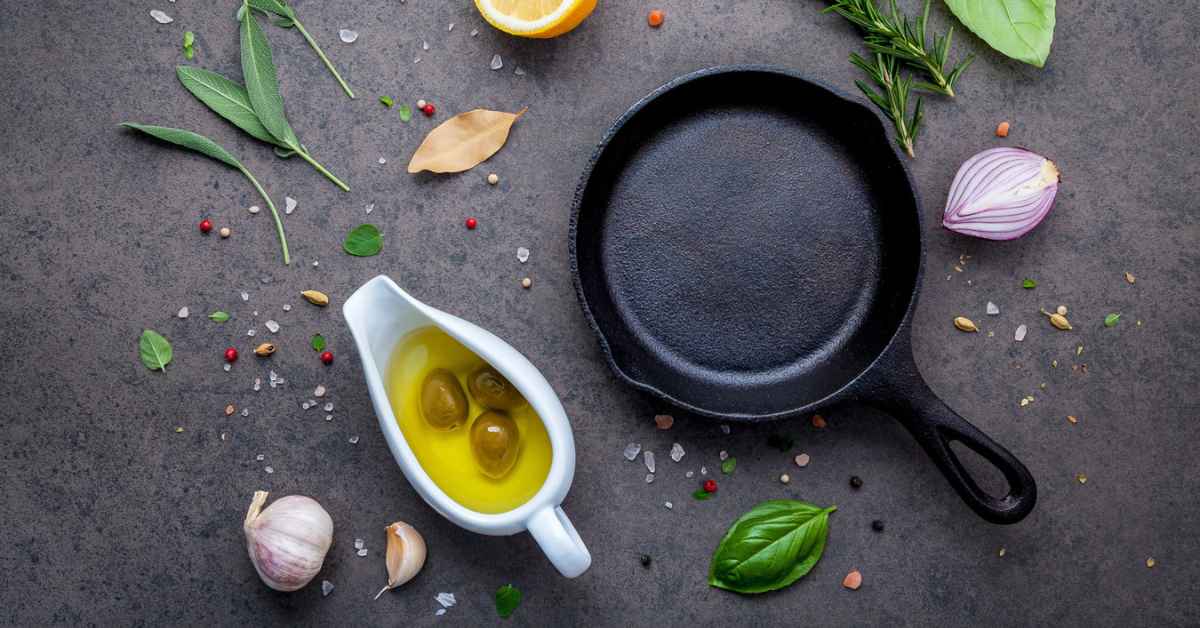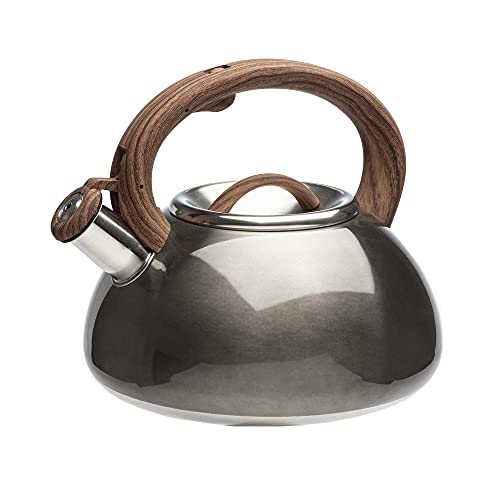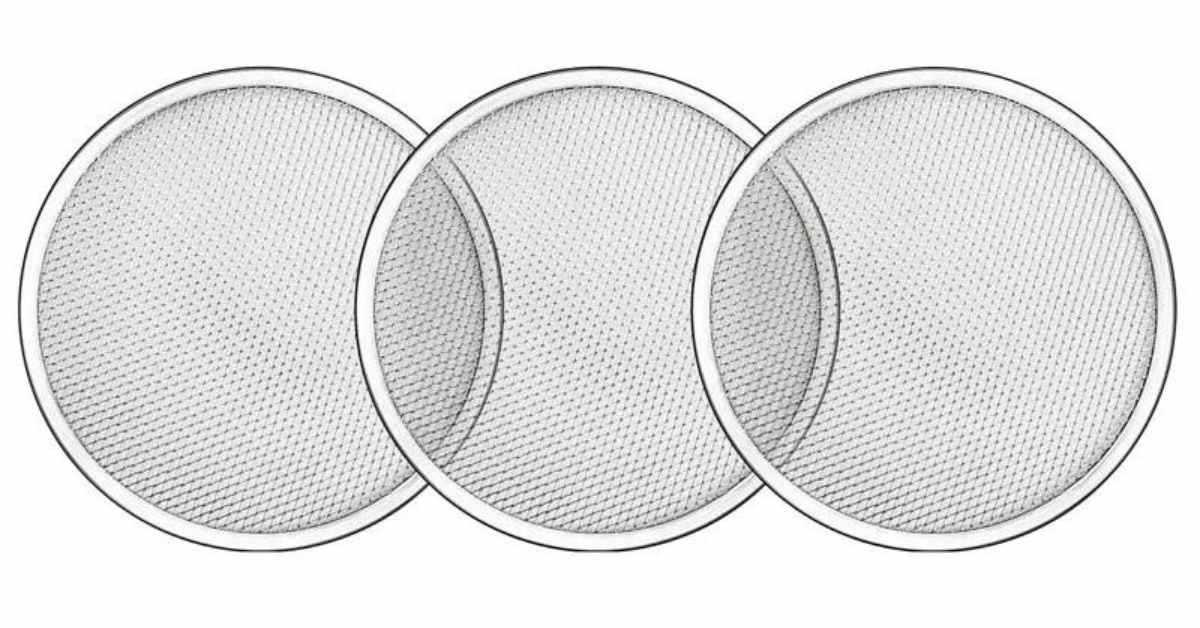Butter and oil can both be used in a cast iron skillet for cooking, but each option offers its advantages and considerations. When choosing between the two, it’s important to consider the flavor profile, smoke point, and desired cooking results.
In terms of flavor, butter adds a rich and distinct taste to dishes, while oil is more neutral in flavor. The smoke point of butter is lower than most cooking oils, making it more susceptible to burning at high temperatures.
However, butter can be ideal for lower-heat cooking and imparting a desirable browned and nutty flavor. On the other hand, oils with higher smoke points, like canola or vegetable oil, are better suited for high-heat cooking and tasks like searing or frying. Ultimately, the choice between butter and oil in a cast iron skillet depends on the specific cooking needs and preferences for achieving the desired taste and texture in a dish.
Table of Contents
ToggleThe Science Behind Cooking With Butter And Oil
When it comes to cooking in a cast iron skillet, understanding the reaction of butter and oil to heat is key. The smoke point of a fat or oil is crucial in determining its suitability for cooking at high temperatures.
Butter has a lower smoke point compared to oil, which means it will start to burn and smoke sooner when exposed to heat. This can result in off-flavors and a charred appearance to your food.
The chemical composition of butter and oil also plays a role in cooking. Butter is derived from dairy and consists of butterfat, milk solids, and water. The milk solids in butter can burn quickly at high temperatures, leading to a less desirable taste.
On the other hand, oils like olive oil, canola oil, or vegetable oil have a higher smoke point and a simpler chemical composition, making them more suitable for high-heat cooking in a cast iron skillet.
So, when it comes to choosing between butter and oil for your cast iron skillet, consider the smoke point and chemical composition to ensure optimal results in your culinary endeavors.
Flavor Comparison: Butter And Oil In Cast Iron Skillet
When it comes to flavoring your dishes in a cast iron skillet, both butter and oil bring their unique tastes and characteristics to the table. Butter, with its rich and creamy flavor, adds a decadent touch to any recipe, making it perfect for enhancing the taste of dishes like sautéed vegetables or seared meats.
On the other hand, oils offer a wide range of flavors to experiment with, such as extra virgin olive oil for a fruity taste or sesame oil for an Asian-inspired twist.
Choosing the best flavor profile for your specific recipes depends on various considerations. For example, if you’re looking for a buttery and indulgent flavor, butter is an excellent choice. However, if you’re aiming for a lighter and more subtle taste, oils like avocado or grapeseed may be a better fit.
Ultimately, the decision between butter and oil in a cast iron skillet boils down to personal preference and the desired outcome of your dish. So, whether you go with the rich and creamy notes of butter or explore the diverse flavors that oils bring, your cast iron skillet is an excellent canvas to experiment with and create mouthwatering meals.
Health Benefits: Butter Vs Oil In Cast Iron Skillet
When it comes to cooking in a cast iron skillet, many people wonder whether butter or oil is the healthier option. Let’s discuss the health benefits of using butter and oil in a cast iron skillet.
Butter and its impact on cholesterol levels
Butter is a dairy product that contains saturated fats, which can increase our cholesterol levels. This can be a concern for individuals who have high cholesterol or are at risk for heart disease. However, butter does provide a rich flavor to dishes and can lend a crispy texture to foods when used in a cast iron skillet.
The nutritional advantages and disadvantages of oil
On the other hand, oil, such as olive oil or vegetable oil, is often considered a healthier alternative to butter. These oils contain monounsaturated and polyunsaturated fats, which are known as good fats. They can help lower bad cholesterol levels and reduce the risk of heart disease.
Determining the healthier option for a cast iron skillet-based cooking
When deciding between butter and oil for cooking in a cast iron skillet, it is essential to consider your dietary needs and health goals. If you’re concerned about cholesterol, using oil might be a better choice. However, if you prefer the added flavor and texture that butter provides, moderation is key. Remember, balance and portion control are key to a healthy diet.
Practicality And Versatility: Butter Vs Oil
Butter and oil both have their merits when it comes to cooking in a cast iron skillet. Butter’s high-fat content lends itself well to enhancing browning and developing a crust on foods. Its rich flavor can add depth and richness to dishes, making it a popular choice for certain recipes.
On the other hand, oil has its advantages. It has a higher smoke point compared to butter, allowing for increased temperatures without the risk of burning. This can be particularly useful when aiming for a crispy finish on foods. Additionally, oil’s neutral taste can be beneficial when you want the flavors of the main ingredients to shine through.
Assessing which option is more versatile for various cooking techniques depends on the specific dish and desired outcome. For sautéing, searing, or stir-frying, oil may be better suited due to its higher smoke point. However, for dishes that benefit from the richness and flavor of butter, such as baking or pan-frying, butter can be a fantastic choice.
Frequently Asked Questions On Butter Vs Oil In Cast Iron Skillet
Is Oil Or Butter Better For Cast Iron?
Oil is better for cast iron due to its high smoke point and ability to create a non-stick seasoning.
Can You Use Butter Instead Of Oil On Cast Iron?
Yes, butter can be used as a substitute for oil when cooking with cast iron.
Do You Put Butter Or Oil On Cast Iron Steak?
For cast iron steak, you can use butter or oil to enhance flavor and prevent sticking.
Conclusion
To sum up, both butter and oil have their benefits when cooking in a cast iron skillet. Butter adds a rich and flavorful taste to dishes, while oil provides a higher smoke point, making it ideal for high-heat cooking.
It ultimately depends on personal preference and the specific recipe you are preparing. If you’re looking for a healthier option, choose oils like olive or avocado oil. However, if you want to enhance the flavor of your dish, go for butter.
Whichever choice you make, remember to use the right amount to prevent sticking and ensure even cooking. Ultimately, experimenting with both butter and oil in your cast iron skillet will allow you to discover your preference and create delicious, perfectly cooked meals.
So, next time you’re in the kitchen, don’t be afraid to reach for that cast iron skillet and get cooking!






